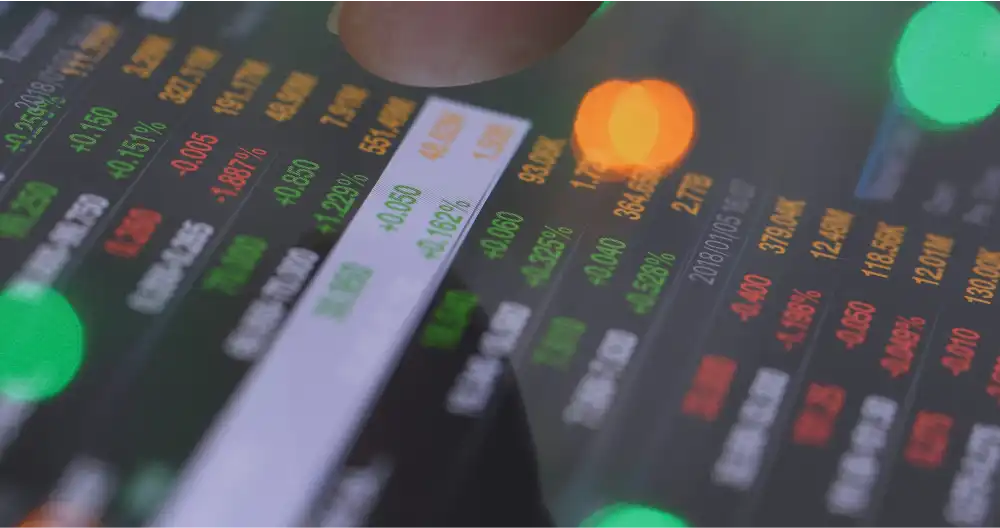
Q4 2022
The final quarter of the year in the UK was marked by political turmoil following a significant mini-budget, which led to market commentators predicting a recession in 2023.
The year 2022 was characterized by extraordinary changes in geopolitics, the global economy, and fiscal and monetary policies, resulting in investors facing numerous shocks and drastic shifts in the investment landscape.
At the beginning of the year, the global economy was in a recovery phase from the pandemic-induced recession. This recovery brought about labor and supply chain tightening, leading to expectations of higher inflation. Central banks gradually began raising interest rates from historically low levels to reflect the improving economic outlook.
However, everything changed with Russia's invasion of Ukraine in the early spring of 2022. This event had far-reaching implications throughout the year. The most immediate impact was seen in commodity markets, with energy and agricultural prices surging due to supply disruptions. Ukraine's inability to export key agricultural crops and subsequent sanctions on Russia caused a sharp rise in inflation, reaching levels not seen in decades.
All asset classes were affected by these developments, with commodities being the exception, as they experienced positive performance. Trends that started in 2021, such as the decline in bond prices and the outperformance of value-oriented investment styles over growth strategies, were exacerbated. Central banks, caught off guard by the jump in inflation, accelerated interest rate hikes, further impacting consumption and mortgage rates. Economic forecasts were significantly downgraded, with many anticipating a widespread recession in 2023.
In the UK, these issues were compounded by political chaos, with three prime ministers, industrial action reminiscent of the 1970s, and a disastrous mini-budget introduced by the Truss administration. This led investors to initially sell sterling, making it the weakest major currency for most of the year. The gilt market also faced significant selling pressure, resulting in surging bond yields as global investors digested the implications of an unfunded budget. A swift change in prime minister and chancellor, along with a complete reversal of the budget, restored calm to UK assets in the fourth quarter.
As the year progressed, some pressures eased as the effects of Russia's invasion diminished, particularly in the energy markets. Europe quickly reduced its reliance on Russian energy supplies, and a milder early winter season and resumed grain exports helped stabilize the situation. Additionally, China eased COVID-19 restrictions driven by populist anger, which improved prospects for its economy.
Interestingly, despite the political chaos in the UK and its unpopularity among international investors since Brexit, the UK stock market outperformed other major markets in 2022. The market managed to post a small positive return while others fell close to 10%. The UK market's heavy exposure to the energy sector, which surged nearly 50% due to the effects of the Russian invasion, contributed significantly to this outperformance. On the other hand, the US market performed poorly, mainly due to technology sector declines. This trend was seen globally, with growth-oriented sectors experiencing more selling pressure than economically sensitive value industries.
The performance of different sectors within global stock markets diverged significantly. Economically sensitive and defensive industries performed well, while highly valued sectors and those heavily exposed to consumer spending faced significant selling pressure. The best-performing sector was energy, followed by utilities, consumer defensive, and pharmaceutical sectors, which are relatively immune to economic slowdowns.
In the fixed-income bond markets, all major segments experienced weakness. Bond prices, both government and corporate, fell sharply as investors reacted to rising inflation and its impact on fixed-income coupons. UK government bonds and index-linked gilts were the worst-performing markets, primarily due to the political turmoil and the poorly received mini-budget introduced by the Truss administration.
Energy and agricultural commodities were the most noteworthy performers, driven by the supply shock caused by the Russian invasion and resulting inflation. Gold also acted as a safe haven with positive returns, given its inflation hedging properties.
Real estate faced selling pressure as concerns grew over the economic fallout from inflation and interest rate hikes. Alternative managers faced a challenging environment but also found opportunities by positioning themselves correctly amid the divergence in asset performance.
Overall, 2022 was a volatile year for investors, with few asset classes posting positive returns and significant swings throughout the year. Success in generating positive returns required nimble decision-making.
